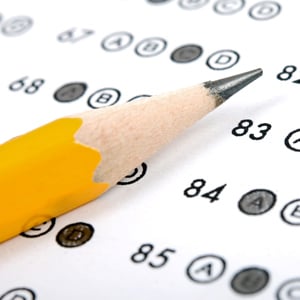What's the best way to share a school's bad bar exam results? These deans have some thoughts

David Faigman, the acting dean at University of California Hastings College of the Law, didn’t know that he’d get individual notice of bar passage rates. But one Friday afternoon in early December, his assistant brought him a letter informing him that Hastings’ July 2016 first-time pass rate was 51 percent.
“It felt like a punch in the gut,” says Faigman, a constitutional law professor who has a 29-year history with the school. Faigman was tapped as its acting chancellor & dean in December 2015.
He shared the information with faculty, staff and current students the following Monday in an email. Ultimately Faigman decided to go with some strong language, including “This is a horrific result,” and “Needless to say, 51 percent takes unacceptability beyond the pale.” His email also criticized the State Bar of California, which gives a three-day bar exam that includes essays and performance tests.
“I’m not a politician at heart, so my inclination is just to be honest and upfront with my sense of what happened,” Faigman told the ABA Journal. “I wanted to express my disappointment, and the feeling that as an institution, we need to do so much more for our students.”
Faigman was one of many law school deans faced with bad bar-result news this fall, and like him, they too spoke of an obligation to students to do better. Others also noted, somewhat reluctantly, that students in some cases may not have studied enough for the bar. And there’s a sense that law schools need to focus more on teaching students how to study, so they’ll be better prepared for the bar exam.
And all agreed that sharing the information publicly is a difficult task.
“The first thing you want to do is make it clear to everybody that the lower bar passage rate is not OK,” says D. Benjamin Barros, the dean of the University of Toledo College of Law. The school had a 63 percent pass rate for July 2016 first-time test takers, the Toledo Blade reported.
One of his initial steps after seeing the results was meeting with third-year students, to talk about how they’re preparing for the state bar. He also mentioned the results in his school’s Winter 2016 alumni magazine, which as of Friday was not posted online yet.
“What I’m most concerned about the end of the day are the students who failed,” says Barros, who came to the law school in July 2015. He told the ABA Journal that the year before, in 2014, the school had a “very respectable bar passage rate” of 83.7 percent. The percentage started to drop last year, and its 2015 bar passage rate for was 67.95 percent, according to the school’s Standard 509 Information Report (PDF).
“I think we have had several good years in a row, and everybody in the building maybe got a little complacent,” he says, adding that blaming results on students “is not really very constructive.” He also advises waiting a few days before writing communications about unsatisfactory bar results.
“If you try to explain the issue within a couple of days of the bar coming out, you’re not going to have all of the information you need,” Barros says. “You can get into trouble if you try to analyze things too soon.”
At Florida Coastal School of Law, the July 2016 pass rate for first-time test takers was 52 percent. Scott DeVito, its dean, decided to share some of his family’s history to communicate his concerns in a letter, writing that rejecting law school applicants with LSAT scores below 150—which many schools do, thinking it will help bar passage rates—could harm diversity in the profession, because many “diverse” law students have LSAT scores below that cutoff.
“My father was an Italian-American. When my father was a child, Italians were considered mentally inferior and, in New York, were sent to vocational high schools preparing them for a trade,” DeVito wrote. He added that his father wanted to attend college, but did not pass an IQ test required for admission. So he took remedial classes, got a 4.0 GPA, and was ultimately admitted to a university, where he earned a degree in mathematics.
“When you’re talking about issues that touch on race it’s very difficult to discuss, because no matter how you try to phrase it you can come across one way when you don’t intend to come off that way,” DeVito says. He said that most responses he got to the letter were appreciative.
“A few people who gave me feedback felt that they were blamed for the bar results. Of course that was not my goal,” he added.
When deans share bar result information they are not happy with, DeVito says, you need to remember that some of your audience is already dealing with the devastating news of flunking the bar.
“Be empathetic to your students,” he says. “They spent three years in law school, worked very hard and didn’t pass the bar. That’s an emotionally and financially difficult outcome for them.”
Hat tip: Above the Law.



